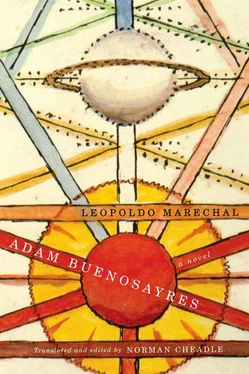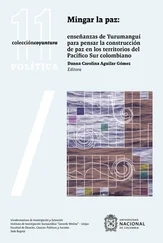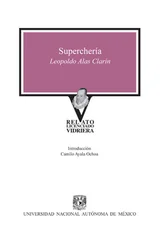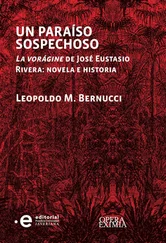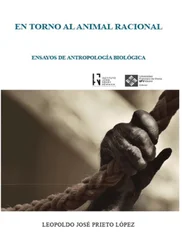When he heard that fearful name, the Grand Orisonist was bodily shaken from head to toe:
— Harrow him! he roared. To the outer darkness with him! Locusts and wild honey, my foot! The waiters at the Adam Bar might tell a different story!
— Once the heresy had been denounced and his nom de guerre adopted, continued Schultz, the Vice didn’t hesitate to go into battle to succour the Holy Church. He donned the helmet of patience, the breastplate of fervour, the backplate of good sense, the paunch-piece of benignancy, the gauntlets of justice, the knee-pieces of daydream, the sollerets of soldierly love. Then he called for the shield of the philosophia perennis , the mace of Sir Syllogism, and the pike of Lady Scholastic. 105Thus armed to the teeth, the Vice’s lights shone so brightly that his astounded cardinals were emboldened to compare him to the star Aldebaran on a moonless night.
At this point, the Grand Orisonist laughed as broadly as his gravity permitted:
— His cardinals! he scoffed. A crew of late-night revellers that drank like Knights Templar! Frivolity on legs, they were regularly hot on the pink heels of the pagan whore!
— A rock of inebriety in a sea of sobriety, Schultz reminded him judiciously.
And resuming the thread of his story, the astrologer turned once again to me:
— Before I go on, I must ask for your undivided attention. For the first time ever you are hearing about a mystery that some day will be divulged at large: it will be confirmed that Buenos Aires, having been the theatre of a battle of such great love, is the mystical centre of the continent. But I return to my tale. Having left the Vice armed like Saint George before the dragon, a description of the dragon’s nature is now in order, so as to understand something of the battle very soon to be joined between the dragon and the Vice. Orisonism, undifferentiated in its early hours, soon developed two distinct facets, namely, Aquilism and Vermism . The aquiline type of Orisonist was characterized by an alarming disposition; lord of the heights, pedestrian on the Way of Light and, of course, a citizen of the Celestial Jerusalem, he had all the surliness, solitary pride, and quick irritability of the eagle who leaves his mountain peaks behind. Whenever he descended to this planet, he would display the amazement of an angel, as if suddenly finding himself in a strange world. There were times when his disciples, weeping with piety, had to remind him what a streetcar was for, or how to hold a fork. Be that as it may, once down on earth, the Orisonist of the aquiline type clapped irate eyes on humanity, seeking strips of Promethean liver on which to exercise the heavenly wrath of his beak. And to this line of Orisonism — concluded Schultz — belongs, or once belonged, the man we have before us.
Seeing himself so clearly denounced, the Grand Orisonist, his face having passed through every colour of indignation, scorn, and shame, erupted in a few plaintive flatus vocis :
— Excommunicants! he wailed. Lord Saint Joseph is going to hear all about this! Your depiction is as false as the Vice’s Persian carpets.
— There you have a sample of Orisonism’s dual aspect, at once quietist and malevolent, Schultz told me. This gentleman hasn’t hesitated to demand help from the Celestial Court for such vulgar needs as renting a place to live or getting an irksome neighbour evicted. What’s more, he has just evidenced his taste for blasphemy by casting doubt on the sworn, irrefutable, and incontrovertible authenticity of the vice-papal rugs.
— What about his opaline glassware? ventured the grave man, one eye weeping, the other laughing.
— Silence! ordered Schultz. Now let’s have a look at the nature of Vermism . The vermiform Orisonist’s shoes, clothes, hairstyle, and diet were so oppressively humble that no one in his presence could avoid feeling vain and empty — in a word, like worldly garbage. If asked his opinion on any question at all, whether human or divine, the Orisonist would lower his eyes innocently and respond: “What do I know, lowly earthbound worm that I am?” And if someone asked him to make the slightest effort, the man would smile de profundis and answer: “Who am I, despicable grovelling worm, to participate in so admirable a project?” And those who heard him would feel an irresistible desire either to kneel before the worm or squash him in the classical manner, or just wish that sparrows from heaven would gobble him up at once. But the worm, entrenched in his position, felt steadfastly certain among the proud of spirit with their stuck-up attitude. He knew very well it was a sinful feeling, since no one should feel too sure beforehand about one’s own last judgment. And yet, though struggling with himself, the vermiform Orisonist fell a thousand and one times into that dangerous form of complacency. Especially on those evenings in this great Babylon that is Buenos Aires, when he would stroll down Florida Street, thronged with heathens and fornicators. He could barely restrain his mirth at the vision of them all marching straight to hell, while he, poor earthbound worm, could already feel his flesh caressed by the white raiment that will clothe the godly on the Day of Wrath.
Choked up by his own eloquence, the astrologer Schultz paused a moment. Then he turned to ask the Grand Orisonist:
— Do you have any objections to this depiction?
— Several, answered the Grand Orisonist. The Lord has said: “Judge not, that ye be not judged.” 106Judgment Day will come soon enough, when all intentions will be weighed.
— Another Orisonist leitmotif ! said Schultz to me, as though to a witness. This gentleman has harped so abusively on the Last Judgment that he put off everything until that day, even such a trivial matter as finding a shirt button in the dresser.
— What about the battle? I demanded. Let’s get to the battle! As you may have guessed, I’m not planning to grow roots in this Inferno.
— The battle, answered Schultz, took place in the Park of the Benedictines in Belgrano, a site both contenders agreed was ideal for the manoeuvres of a jousting match. Armoured and mounted on stormy steeds, the Grand Orisonist and the Vice, at a blast from the oliphant, charged one another at half-rein, lances at the ready. The spectators saw them take off like a shot from a crossbow and doubted not that both paladins were contemplating the bloodthirsty design of sending the other ad Patres . The collision occurred in front of the Benedictines’ three ombú trees. Both were struck in the cuirasse, both lost their stirrups, not to say their cool, and both came down with such a din of banging metal as to drown out God’s own thunderbolt. Both lay stunned on the ground for the time necessary to travel two leagues on horseback. The first to recover was our Vice-Pope. Unsheathing his brand, its pommel encrusted with the finest relics (including a tooth of Saint Stanislaus), he flew at his rival with the intention of laying open his entrails. Seeing him in a dead faint, however, and the Vice not being a man to attack a defenceless enemy, he waited for the Grand Orisonist to come around. Which would have been on Judgment Day after sundown, had the Vice not sent his squire to fetch a litre of Mendoza wine (vintage 1923), with which the Vice doused the face of the sleeping knight, not without first having knocked back at least half the bottle himself. As soon as the Grand Orisonist was up again, they resumed the fight on foot, using swords. The two chieftains, in all the vigour of their respective ages, then exchanged such violent blows that their fractured suits of armour went flying off in pieces, with the result that all the rubies, emeralds, sapphires, and lapis lazuli with which their arms were exquisitely adorned — in a manner some observers qualified as baroque — were scattered like seed over the ground. Meanwhile, the Grand Orisonist’s hosts and the Vice’s cardinals clashed in the most splendid rumble ever to be witnessed in those days. And they say the cardinals performed there such feats, and so many, that Theology and History, both in attendance, exchanged a look of surprise, as though wondering if they weren’t witnessing a revival of the times of the Archbishop Turpin. 107
Читать дальше
